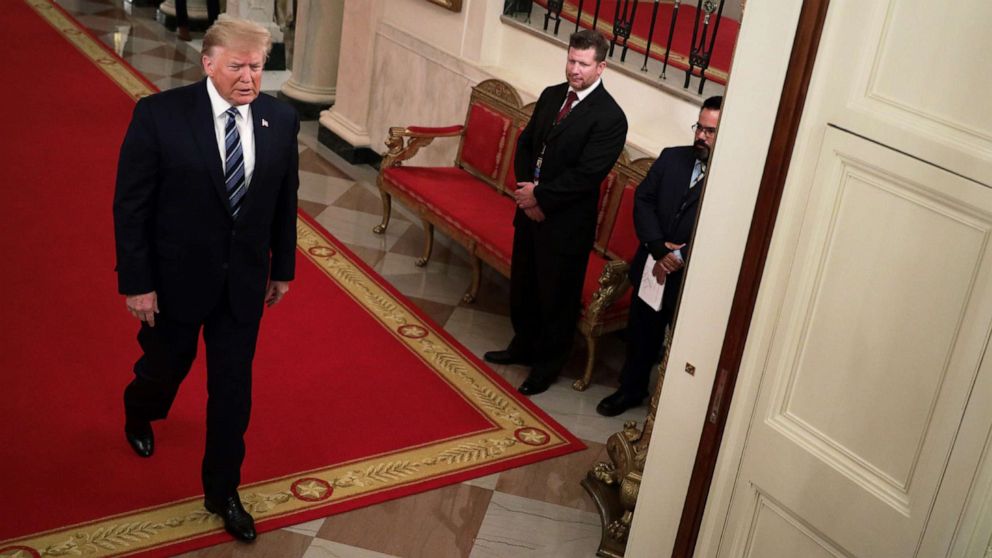Testimony and texts: How the Trump-Ukraine allegations fit together in a timeline
With so many current U.S. officials testifying in open hearings, and with hundreds of real-time text messages and nearly a dozen transcripts of closed-door testimony now public, the story of President Donald Trump and Ukraine is sometimes hard to follow.
How do each of the testimonies and text messages fit together? What allegations do they contain about Trump's actions and those of his government advisers?
These are the bottom-line allegations:
- Driven by debunked claims promoted by conservative media and his personal attorney Rudy Giuliani, Trump pushed the newly-elected president of Ukraine, Vlodymyr Zelenskiy, to investigate Trump's political rival, former Vice President Joe Biden. Trump even wanted Zelenskiy to announce the investigation in public, witnesses testified.
- Meanwhile, Zelenskiy was eager to visit the White House and meet with Trump. At the White House's behest, senior U.S. officials made clear to Zelenskiy's team that a White House visit would only happen if Ukraine investigated Biden and announced it publicly.
- While the Ukrainians were pushing for a White House visit and Trump administration officials were pushing for a Biden investigation, Trump directed the U.S. government to freeze much-needed military aid to Ukraine. (For years, Ukraine has been engaged in a bloody war with Russia. The United States was sending military aid to Ukraine to help keep Russia at bay and keep Ukrainian soldiers alive -- and that aid enjoyed bipartisan support in Congress and even "unanimous" support within relevant parts of the U.S. government.)
- The Ukrainian officials may not have realized it, but Trump's top diplomat to Ukraine alleged that the White House refused to restart military aid until Ukraine agreed to investigate Biden and announce it publicly. And, while the military aid was frozen, Trump specifically wanted to know the status of Ukraine's investigations.
- Military assistance to Ukraine was finally restarted two days after three House committees announced they were investigating recently-received allegations that Trump sought "to pressure the government of Ukraine to assist the president's reelection campaign" by, among other things, withholding the military aid.
Here is a timeline of this year's events, as relayed in testimony -- under oath -- to Congress and in publicly-released documents from the time:
BY JANUARY: Giuliani launched a quiet campaign to corroborate claims of Obama-era corruption in Ukraine, including claims that Ukraine had "colluded" with Democrats in the 2016 U.S. presidential election and that, as vice president, Biden abused his position to protect his son. Giuliani believed that Biden pressured Ukraine to fire the nation's top prosecutor because the prosecutor was investigating Burisma, a Ukrainian company paying Biden's son to be on its board. (U.S. officials have since testified that the claims were not credible and that they were being peddled by the prosecutor's successor, Yuriy Lutsenko, who was trying to save his job. In fact, officials testified, Biden pressured Ukraine to fire the prosecutor because he was ineffective and accused of corruption.)
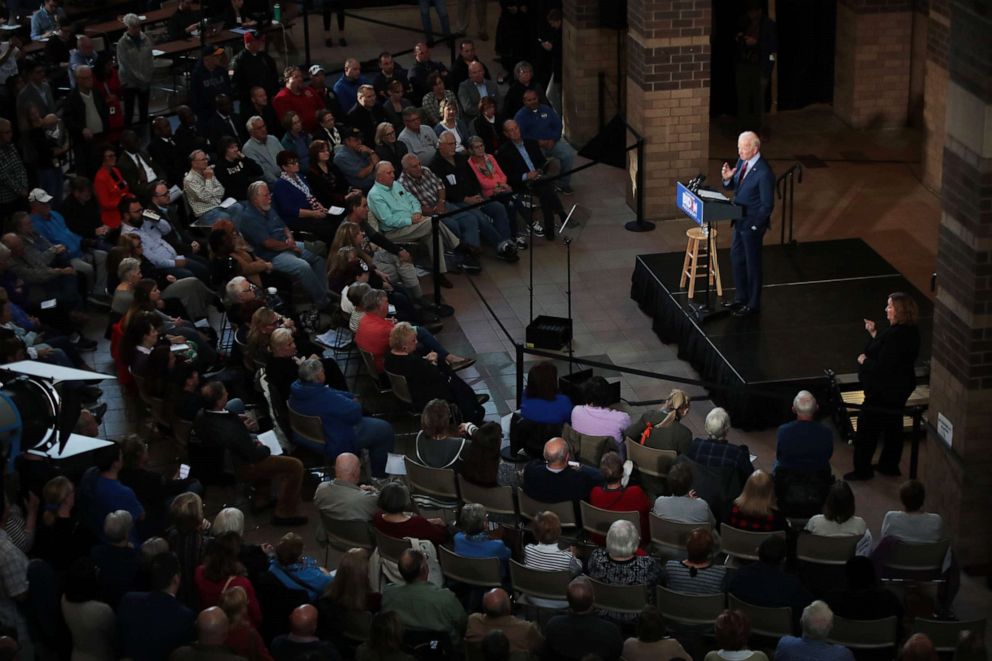
BY MID-APRIL: Lutsenko publicized his claims about Biden in an interview with a Trump-friendly journalist, and larger conservative media outlets began to cover them. Giuliani promoted the claims on Fox News.
APRIL 21: Zelenskiy was elected president of Ukraine after vowing to root out corruption. Trump called Zelenskiy to congratulate him. The call was "complimentary" and "positive," and Trump "extended an invitation [for Zelenskiy] to visit the White House," according to testimony.
MAY 23: After returning from Zelenskiy's inauguration, Trump's special envoy to Ukraine, Kurt Volker, Energy Secretary Rick Perry and Trump's ambassador to the European Union, Gordon Sondland, met with Trump to discuss Ukraine. The group told the president he should meet with Zelenskiy at the White House. Trump complained that Ukraine "tried to take him down" in 2016 and told the group, “talk to Rudy [Giuliani],” Volker and Sondland each testified. (The three officials ended up working with Giuliani "at the express direction of the president," Sondland testified publicly.)
MAY 29: Trump sent a letter to Zelenskiy, congratulating him on taking charge and saying, "I would like to invite you to meet with me at the White House in Washington, D.C., as soon as we can find a mutually convenient time."
MID-JUNE: "The Ukrainians were clearly eager for the meeting to happen," according to Trump's top U.S. diplomat to Ukraine, Bill Taylor. But in multiple "communications" Volker and Sondland both told Taylor "that the president wanted to hear from Zelenskiy before scheduling the meeting in the Oval Office," Taylor testified. U.S. officials then began preparing Trump for a phone call with Zelenskiy, according to Taylor.
JUNE 28: Volker separately told colleagues that, while in Toronto with Zelenskiy on July 2, he was going to tell the Ukrainian president that if he wants a White House meeting, he will have to show Trump that he's willing to "cooperate" on investigations, according two people in those separate conversations, Taylor and National Security Council staffer Army Lt. Col. Alexander Vindman.
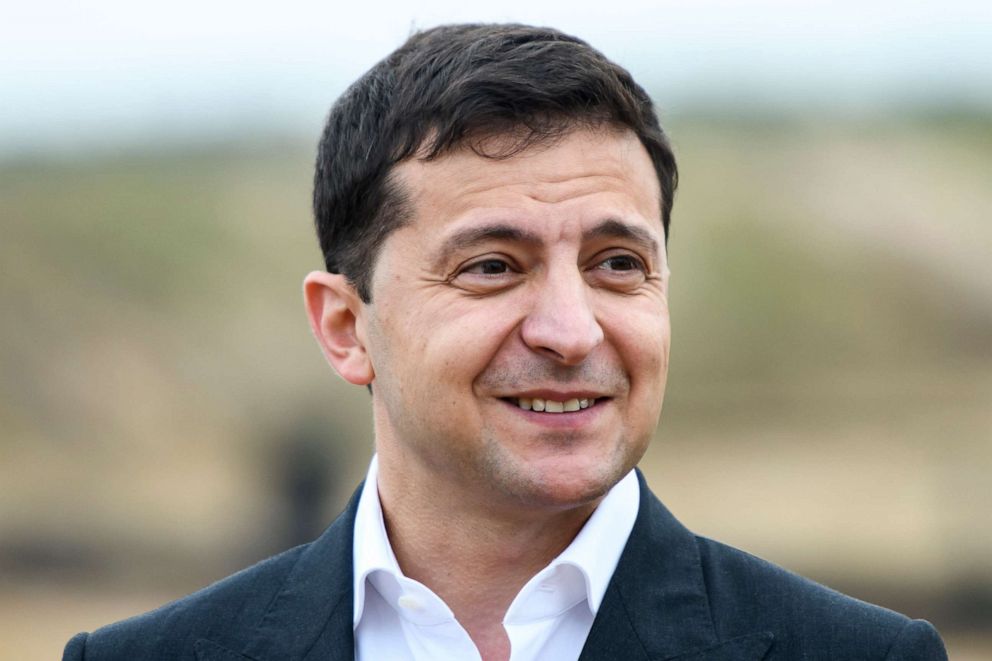
JULY 3: After meeting with Zelenskiy in Toronto, Volker claimed to others that he told Zelenskiy that Trump would want to hear about "the investigations," Taylor testified. (Without disputing it, Volker did not corroborate that account himself, telling Congress only that while in Toronto he warned Zelenskiy that Giuliani was promoting "a negative narrative about Ukraine" and it was "probably influencing President Trump's thinking.")
JULY 7: Taylor texted Volker: "Can you tell [the Ukrainians] that we can schedule the phone call if Ze[lenskiy] is ready to say that he is not interfering, one way or another, in any investigations?"
JULY 10: In a meeting with senior Ukrainian officials in Washington, including Zelenskiy's top aide Andriy Yermak, Sondland testified that he mentioned "the pre-requisite of investigations before any White House call or meeting." Vindman and Hill recalled Sondland's mention of "the deliverable required in order to get the meeting," as Vindman, who was at the meeting with Ukrainians, described it.
JULY 10, LATER IN AFTERNOON: In another meeting with Ukrainian officials, Sondland again outlined "the deliverable for these investigations in order to secure this meeting," insisting "that the Ukrainians would have to deliver an investigation into the Bidens," Vindman testified. Sondland also said his message "had been coordinated with White House Chief of Staff Mr. Mick Mulvaney," Vindman testified. Hill, again, offered a similar account. (Sondland testified he could not recall such discussions from the follow-up meeting.)
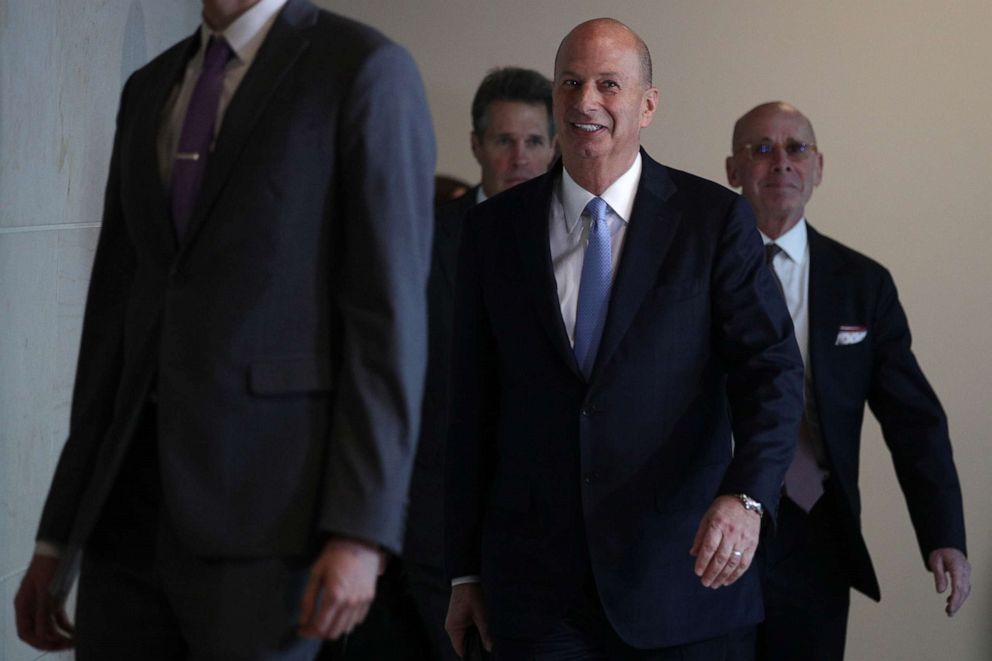
MID-JULY: "By [this time] it was becoming clear that the meeting President Zelenskiy wanted was conditioned on the investigations of Burisma and alleged Ukrainian interference in the 2016 U.S. elections," Taylor testified. "It was also clear that this condition was driven by the irregular policy channel I had come to understand was guided by Mr. Giuliani." At this time, Giuliani "had been communicating with Ukrainians without our knowledge," Sondland testified.
JULY 13: Sondland emailed an NSC official saying the “sole purpose” of a phone call between Trump and Zelenskiy “is for Zelenskiy to give [Trump] assurances of ‘new sheriff’ in town,” including assurances that “any hampered investigations will be allowed to move forward transparently. Goal is for Potus to invite him to Oval.”
JULY 18: On a multi-agency conference call, an official with the Office of Management and Budget announced that military aid to Ukraine had been inexplicably suspended at Trump's direction, Taylor and senior State Department official George Kent testified. In a text message to Volker and Sondland that day, Taylor wrote that the OMB official said "all security assistance to Ukraine is frozen per a conversation with Mulvaney and POTUS."
JULY 19: Volker texted Sondland and Taylor to set up a call with Yermak, Zelenskiy's aide. "Most impt is for Zelensky to say that he will help investigation," Volker texted. At this time, Zelenskiy's team knew Trump wanted the Bidens investigated and that Trump had not yet agreed to a White House visit, Volker testified. (No evidence has surfaced so far suggesting Zelenskiy's team knew at this point that military aid had been frozen.)
JULY 25, MINUTES BEFORE TRUMP-ZELENSKIY CALL: Volker texted Yermak: "Heard from White House -- assuming President Z convinces trump he will investigate / ‘get to the bottom of what happened' in 2016. we will nail down date for visit to Washington."
JULY 25, THE PHONE CALL: According to a rough transcript released by the White House, Trump insisted on the phone with Zelenskiy that "the United States has been very, very good to Ukraine. I wouldn't say that it's reciprocal necessarily." Then Trump said to Zelenskiy: "I would like you to do us a favor … I would like you to find out what happened with this whole situation with Ukraine." Later in the call, Trump raised Biden and his son, claiming, "Biden stopped the prosecution and a lot of people want to find out about that so whatever you can do with the Attorney General would be great." After Zelenskiy noted that one of his "assistants spoke with Mr. Giuliani just recently," Trump asked Zelenskiy to work with Giuliani.
JULY 26: After meeting with Yermak in Ukraine, Sondland went with three U.S. embassy staffers to a restaurant, where Sondland called Trump from an outdoor terrace, one of those staffers, David Holmes, testified. During the conversation, much of which Holmes could overhear because Trump was speaking so loudly, Sondland told Trump that Zelenskiy, "loves your ass;" Trump then asked, "So he's gonna do the investigation?" Holmes recalled. "Ambassador Sondland replied "he's gonna do it" and he would "do anything you ask him to." After the call, Sondland told Holmes that Trump did not "give a s--- about Ukraine" and only cared about "big stuff" like the Biden investigation, Holmes testified. (Sondland confirmed in his public testimony that he spoke with Trump by phone that day, and while he has "no recollection of discussing Vice President Biden or his son" afterward, he also has "no reason to doubt [the others'] accounts." Trump said he "knows nothing" about such a call with Sondland.)
EARLY TO MID-AUGUST: Trump wanted Zelenskiy to publicly announce the investigations, several officials testified. And, in several calls with Sondland, Giuliani "demanded" that the public statement include investigations of the 2016 election, Sondland testified. “He kept repeating Burisma and 2016 election,” Sondland said. Giuliani “was expressing the desires of the president,” and “Giuliani’s requests were a quid pro quo for arranging a White House visit for President Zelenskiy,” according to Sondland's public testimony.
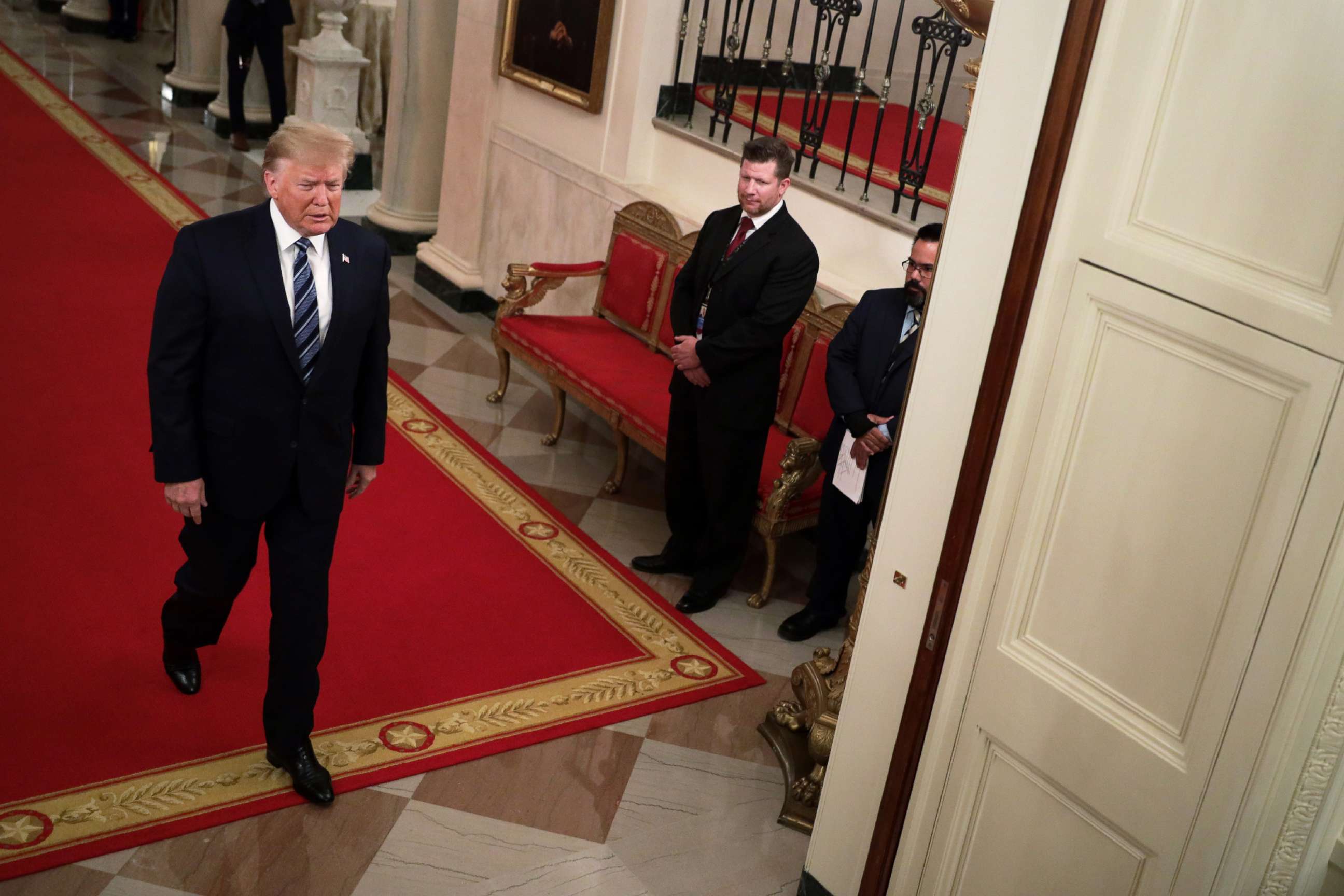
AUG. 9: Discussing the proposed Trump-Zelenskiy meeting, Sondland texted Volker: "I think potus really wants the deliverable."
AUG. 10: Yermak texted Volker: "I think it's possible to make this declaration," but "it will be logic to do after we receive a confirmation of date" for the White House visit. Later that same day, Yermak texted again, saying, "Once we have a date, we will call for a press briefing, announcing upcoming visit and outlining vision for the reboot of US-UKRAINE relationship, including among other things Burisma and election meddling investigations."
AUGUST 11: Sondland sent an email to senior State Department officials intended for Secretary of State Mike Pompeo: “Mike – Kurt and I negotiated a statement from Ze[lenskiy] to be delivered for our review in a day or two. The contents will hopefully make the boss happy enough to authorize an invitation. Ze plans to have a big presser on the openness subject (including specifics) next week.”
AUG. 13: After consulting with Sondland and Giuliani, Volker sent Yermak a draft of Zelenskiy's proposed announcement, which said Ukraine would investigate "Burisma and the 2016 U.S. election." Volker told Yermak those references were "2 key items." Ultimately, Volker recommended to Yermak that any statement not include the specific references, Volker testified.
AUG. 16: Kent, the senior State Department official, wrote a memo saying he had "concerns that there was an effort to initiate politically motivated prosecutions that were injurious to the rule of law, both Ukraine and U.S.," as Kent later described it to Congress.
AUG. 28: Politico published an article saying U.S. assistance to Ukraine had been suspended. The Ukrainians were on notice.
SEPT. 1: Vice President Pence and Zelenskiy met in Warsaw. Before the meeting, Sondland told Pence he had “had concerns that the delay in aid had become tied to the issue of investigations,” Sondland testified publicly. In a brief one-on-one meeting with Yermak while in Warsaw, Sondland told Yermak "that resumption of U.S. aid would likely not occur until Ukraine provided the public anti-corruption statement that [they] had been discussing for many weeks," Sondland told Congress. On the same day, Sondland recalled to Taylor that -- in a previous conversation -- Trump said "he wants President Zelenskiy to state publicly that Ukraine will investigate Burisma and alleged Ukrainian interference in the 2016 U.S. election," Taylor testified. (Sondland told Congress he didn't recall making such statements to Taylor.)
SEPT. 8: After Trump demanded that Zelinskiy "clear things up and do it in public," Sondland informed Zelinskiy that "if President Zelenskiy did not clear things up in public, we would be at a stalemate," Taylor said he was told, which Taylor took to mean "Ukraine would not receive the much-needed military assistance." Zelenskiy then agreed to make a public statement in an interview with CNN. Kent said he recalled Sondland suggesting that announcing investigations on CNN would clear the way for a White House visit.
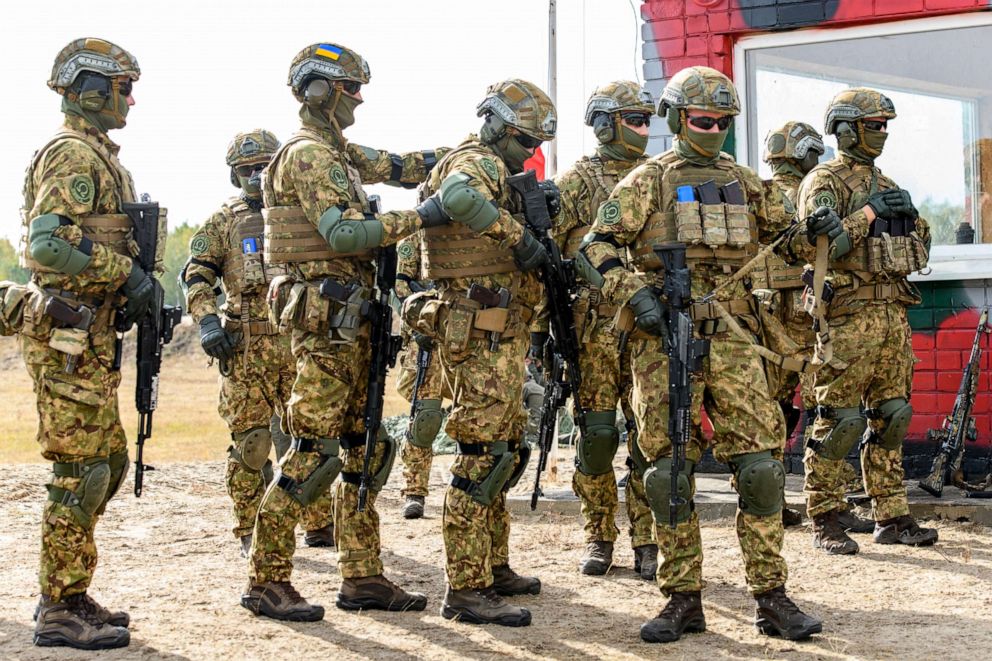
SEPT. 9: Taylor sent a text to Volker and Sondland, saying, "Withholding security assistance in exchange for help with a domestic political campaign in the United States would be crazy."
SEPT. 9: After receiving information from the U.S. intelligence community's inspector general, three House committees announced they were launching a "wide-ranging investigation" into whether Trump and Giuliani sought "to pressure the government of Ukraine to assist the President's reelection campaign" by, among other things, withholding military aid to Ukraine.
SEPT. 11: The hold on military aid to Ukraine was lifted, according to Taylor.
SEPT. 25: The rough transcript of Trump's July 25 call with Zelenskiy was released. On the same day, Trump and Zelenskiy met in New York, alongside the U.N. General Assembly. Sitting next to Trump and in front of cameras, Zelenskiy told reporters he felt "no pressure" from Trump, adding, "Nobody pushed me." Zelenskiy called their July 25 call "good" and "normal."
ABC News' Allison Pecorin contributed to this report
